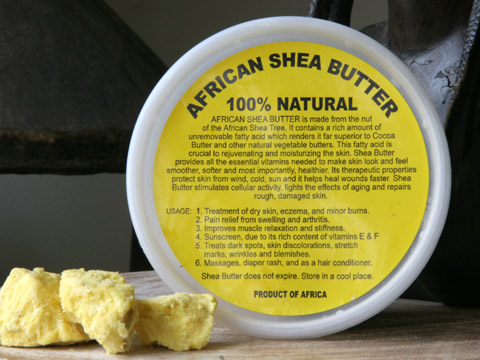
One of the most popular hairstyles that naturals wear is the Twist Out. Regardless of the length, density or texture of one's hair, the Twist Out is a crowd favorite and a go to hairdo for all occasions. This particular style is not only easy to master but creates one of the prettiest curl patterns on natural hair. It is fairly quick to do, depending of course on the size twists used to set the style. Oh how we all love those non-technical styles that don’t require hours of tedious prepping. For naturals on the go who have a packed daily schedule, easy does it. While we love the results of braid outs, flat twists, Bantu knot outs and other curly natural hairstyles, the two-strand twist seems like an easier option and stands to reason why so many opt to wear it more often than any other setting style.
Don't get fooled however, by how easy it is to do the style. As easy as it is to achieve those beautifully defined curls, it is just as easy as it is to lose them. If the right technique is not applied to achieve the curls then before long they can become nothing short of a pouf ball. The texture of natural hair is very fickle and unpredictable and styles may not endure if, for example, the wrong products are used adverse weather conditions ensue. While there isn't a right or a wrong way to do a Twist Out, there are definitely ways, means, tips and tricks for enhancing and improving the results of the hairdo. A little adjustment can go a long way to achieve that well defined, shiny, bouncy and voluminous Twist Out. The following are six tips that will help you to achieve the perfect Twist Out or at least as close to perfect as it can get.
1. Twist on wet or damp hair

Hairstyles that require definition and curls are best achieved if done on soaking wet or damp hair. When hair is wet, the bonds are temporarily broken which makes the hair easily adaptable to whichever shape it is set in while wet. The curl pattern and definition that you get from a Twist Out done on wet hair as opposed to dry hair will be more dramatic. Twists done on wet hair is better able to hold its shape and will result in a more lasting style. Twisting on damp hair will have similar results but the drying time will be decreased significantly. Whether you choose to do a Twist Out on wet or damp hair, you should be able to achieve optimal definition and a long lasting hairdo.
2. Don’t overdo it with products
It is important to use moisturizing products when doing a Twist Out. This will help to promote soft, touchable and fluffy curls. Too much of anything, however, is not good. Going overboard with products and piling layer upon layer of your styling aid of choice can ruin the hairdo. Product overload can cause hair to become too weighed down and the curls will not be as lively but will most likely stand the risk of being limp and looking overly greasy. This is certainly not the look we are going for with a Twist Out. It shouldn’t be flat and lifeless but rather big and voluminous. Obviously, the amount of product needed will vary from person to person, depending on hair type. For those with thicker, denser hair, more product is needed; while thinner, finer hair types might require less. The best approach is to start off using less product and then add as you go along if the need arises.
As naturals, when we consider hairstyles, longevity is very important. The process of setting natural hair for these styles is usually very tedious and time consuming. It is important, therefore, to make your style of choice as lasting as possible. An important part of what affects the longevity of a hairstyle is the type of products used to achieve them. In the case of a Twist Out where definition plays a huge part in the outcome, using a product with hold is very important. Such products help not only with definition but also provide the firmness and hold necessary to mold the twists and form flawless and frizz free curls. Some of the more popular products used to provide hold are gels, jams, souffles and mousses. If I were to single out one product that is used most commonly among naturals, I would have to say Eco Styler Gel. It is the go to styling aid of choice for naturals as it relates to hold. If lasting and frizz free curls are desired, consider using products that provide curls that will last and last and last.
When doing twists for a Twist Out, it is important
for the twists not to prematurely unravel as this will interrupt the curl
definition process. If twists are not allowed to set properly, the hairstyle
can be an epic fail. One way to ensure that the twists remain intact is to use
a sealant. The sealant that is best suited for this purpose is Shea Butter
which will provide that waxy base necessary for keeping the ends of the twists
locked in place. It also provides the benefit of keeping the hair ends moisturized
which ultimately prevents them from looking dry and weathered. A little goes a
long way with Shea Butter, so again, there is no need to go overboard. This
crucial step in the twisting process will take your Twist Out to another
level….be sure to go ahead and seal the deal.
 5. Thoroughly Detangle
5. Thoroughly Detangle
Before attempting to twist your hair, you MUST ensure that your hair is properly detangled. If twists are done on tangled or matted hair, the curls will not turn out being smooth when the twists are being taken down. Your hair will also be at risk of breaking when attempting to separate the curls. This threat will be even more evident in hair types that are more tightly coiled as there is the tendency for strands to get intertwined with each other. This very critical step of detangling should never be omitted if your Twist Out is expected to turn out great.
6. Separate and fluff with care

Having done your twists, and allowing them to dry
and set, the next step is the take down for the big reveal. A big part of
having a nice and fluffy Twist Out is separating the curls. This can mean the
difference between well-defined, frizz free curls and a mop-like, frizzy,
undefined mess. The degree of separation will depend on the look that you are
going for. As a general guide, try not to separate each twist into more than
four sections. The more you separate, the greater your chances of experiencing
frizz. Start from the roots and work your way down to the tips when separating
also. This technique will also minimize frizz and prevents your curls from
losing definition. Be gentle and patient when handling your hair and you will
be sure to achieve better results.
In our quest to master the art of doing Twist Outs, it is important to bear in mind that there is no one magic formula that can be applied to get the best outcome. Each individual will have to pretty much experiment to determine what combination of products and processes works best to achieve their desired result. You may find that by tweaking here and making adjustments there, you will eventually find that winning combination that unlocks the secret to your personal, individual perfect Twist Out.

Candie's Natural Hairnamix was birthed a few months after Jamaican native Rossette "Candie" Allen began her natural hair journey in May 2010. She gears this column toward naturals, transitioning naturals, aspiring naturals and the naturally curious, sharing experiences, expertise and experiments while celebrating emancipation from chemical slavery.



